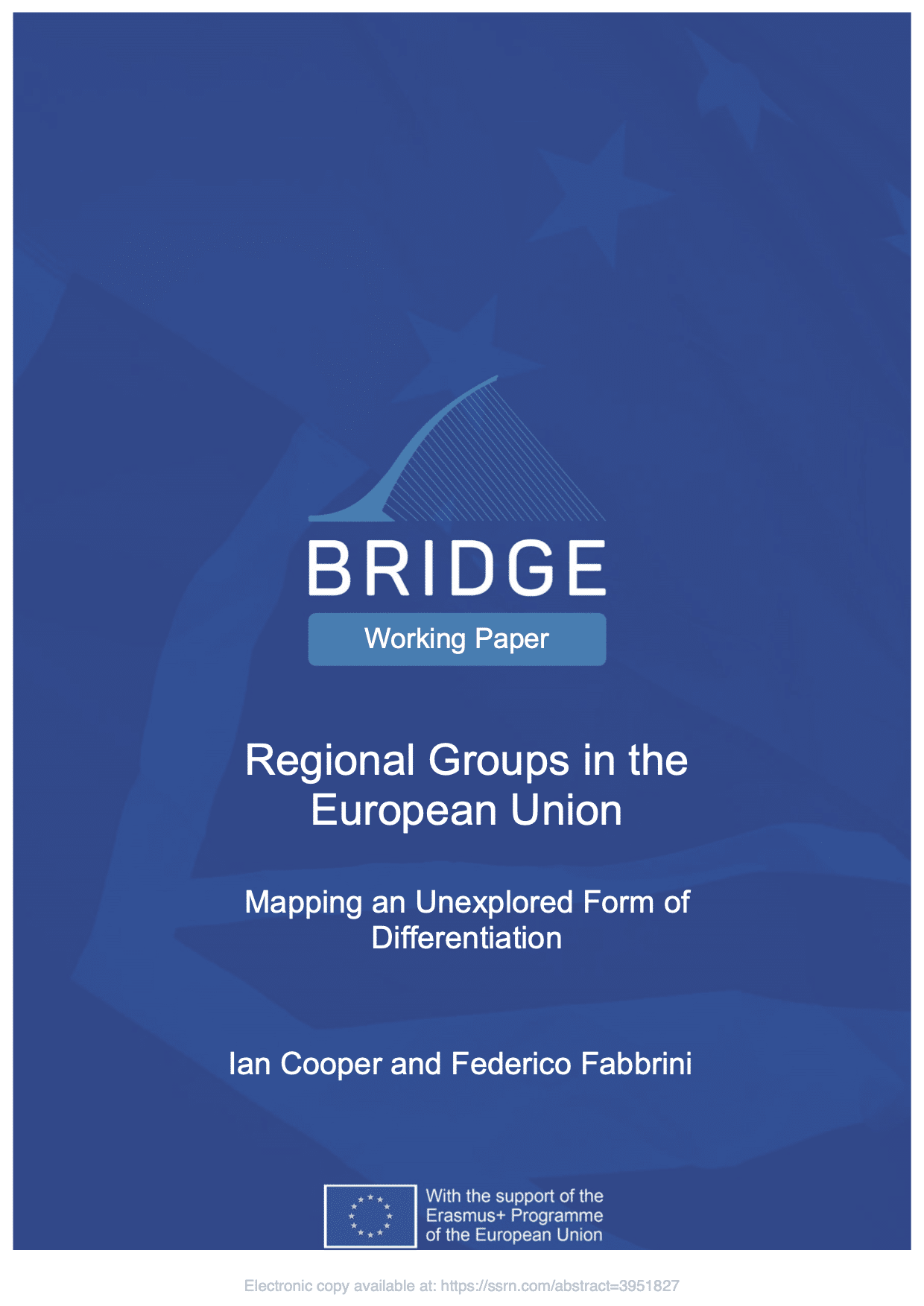Regional Groups in the European Union: Mapping an Unexplored Form of Differentiation

Within the EU there are several regional forums in which member states cooperate with one another outside the EU institutional framework. The purpose of this article is to define, identify, compare and explain these intra-EU bottom-up regional groups (BURGs). A BURG may be defined as a group of geographically proximate current EU member states engaging in a form of institutionalized and active cooperation that is institutionally separate from the EU. By this definition, thirteen BURGs may be identified. Comparing the BURGs, they are observed to vary according to their longevity (including whether they were established pre- or post-accession), institutional complexity, policy scope, and frequency of meeting. Explaining BURGs, it is observed that they may serve one or more of four purposes – integration vanguard, functional cooperation, policy coordination, or resistance. These BURGs represent an unexplored form of differentiated governance within the EU. They do not conform to the classic definition of differentiated integration, which is measured according to whether member states opt-out of common EU policies. Rather, they are a bottom-up form of differentiation, that sits at an intermediate level between the member states and the EU.

